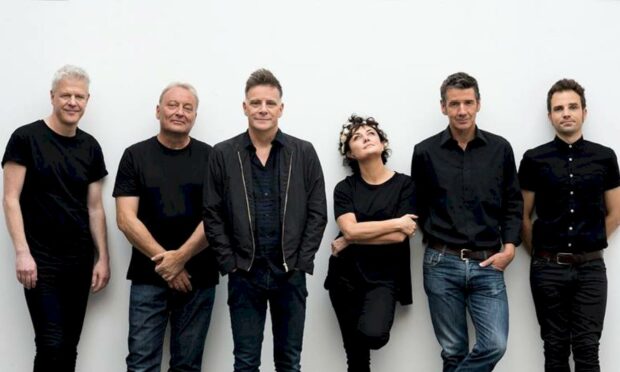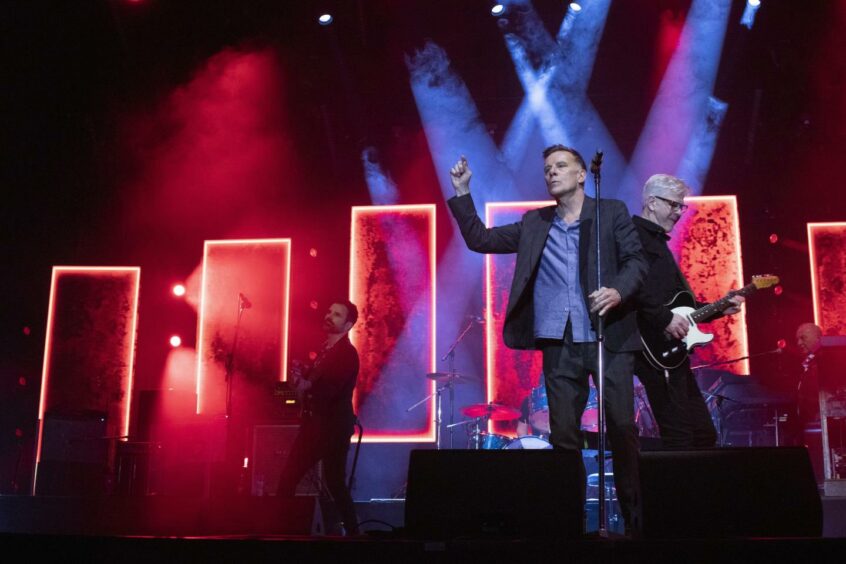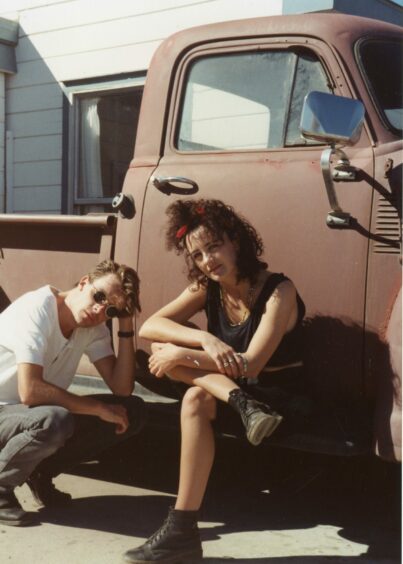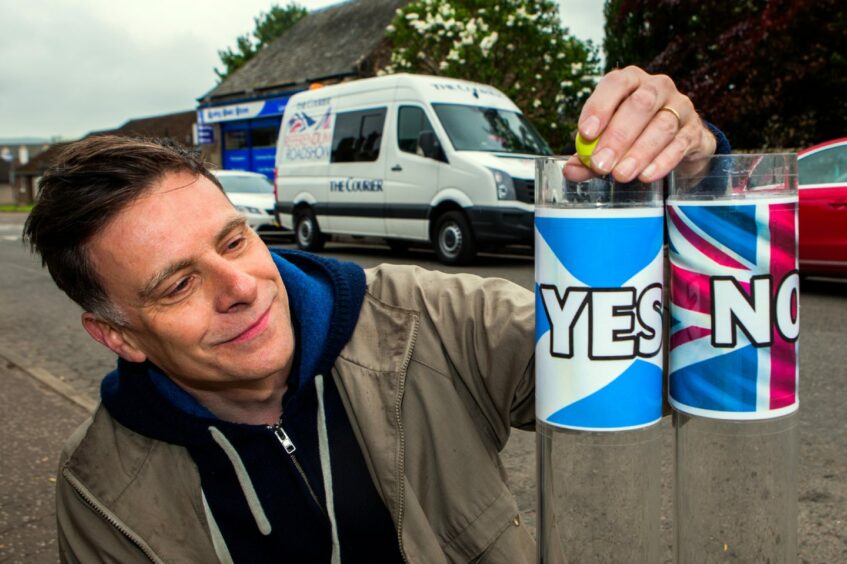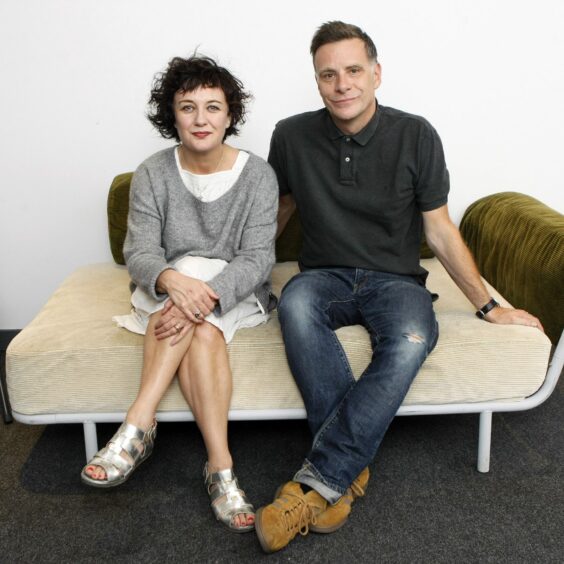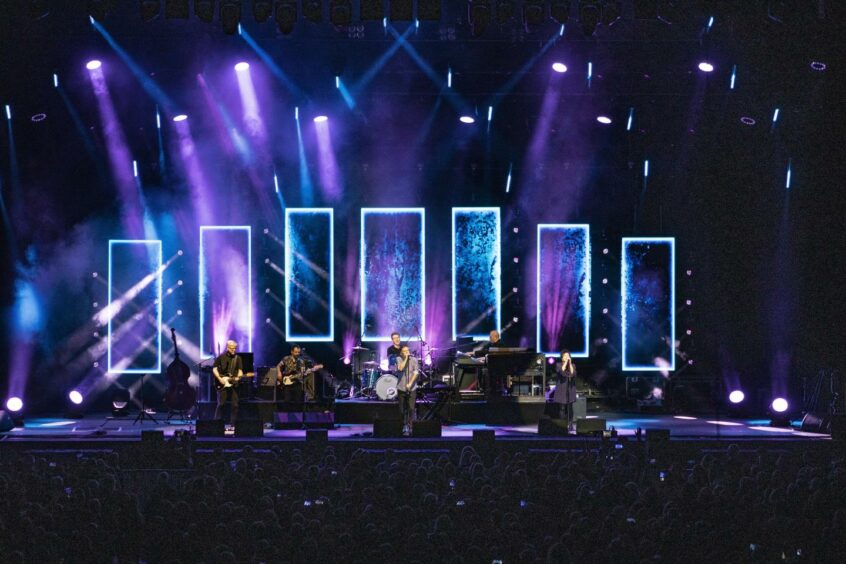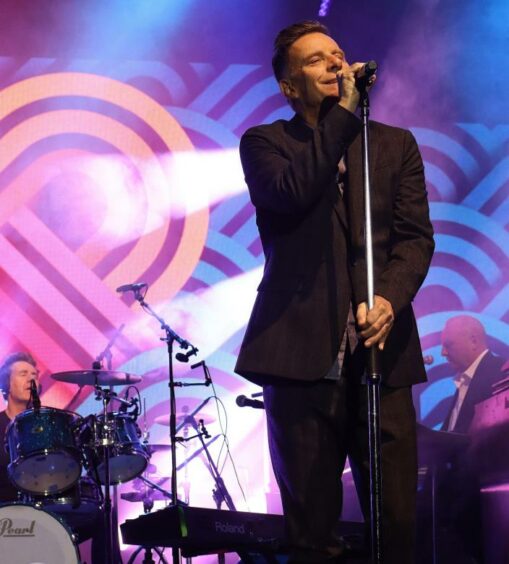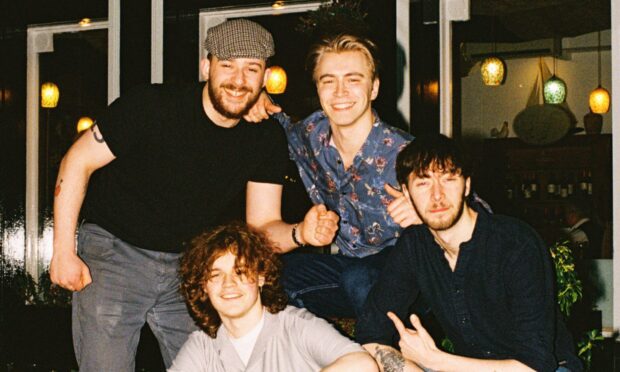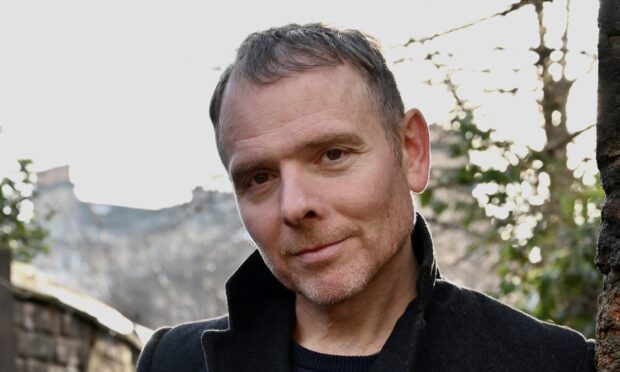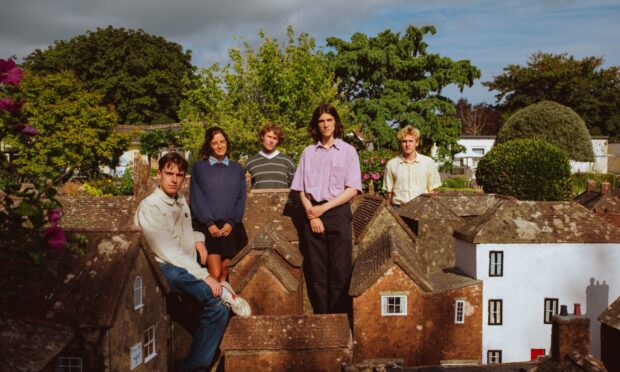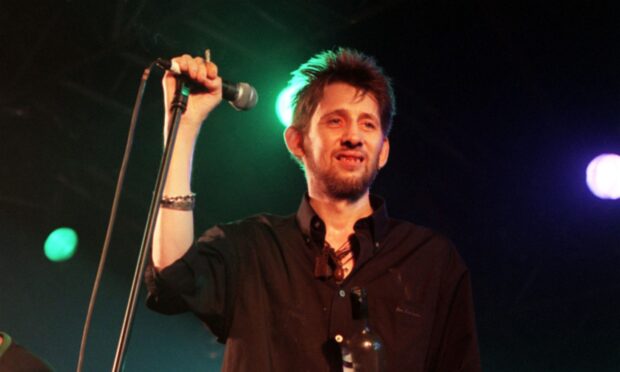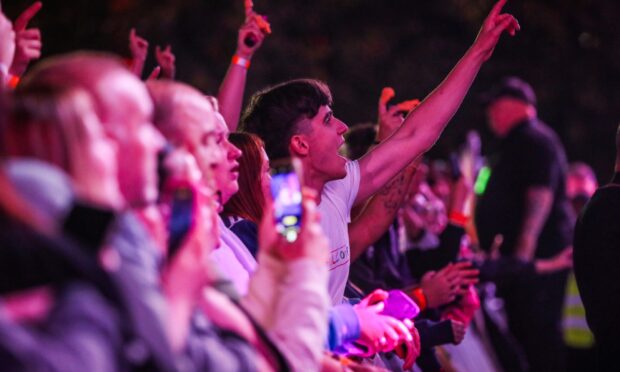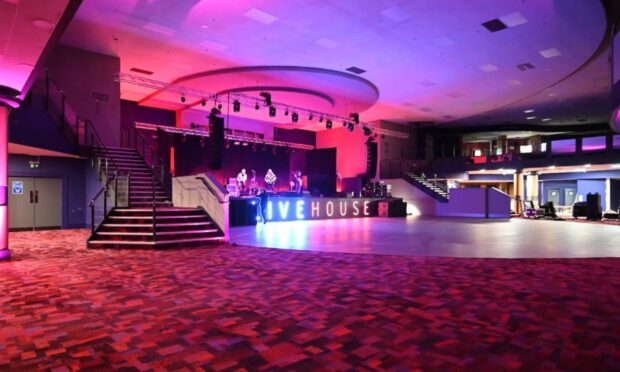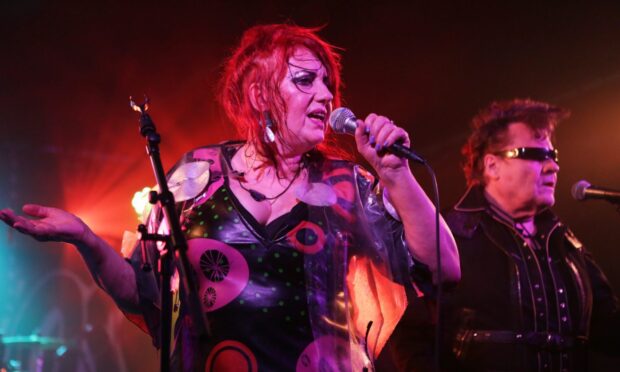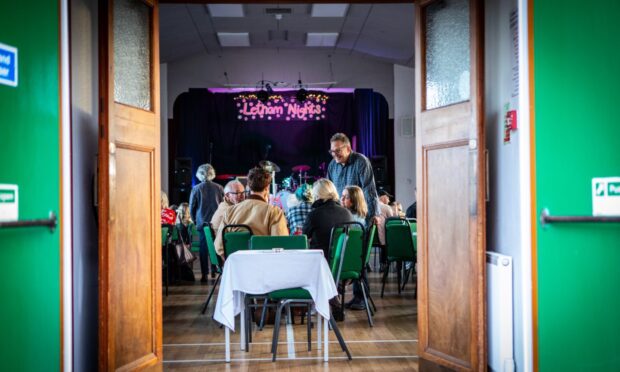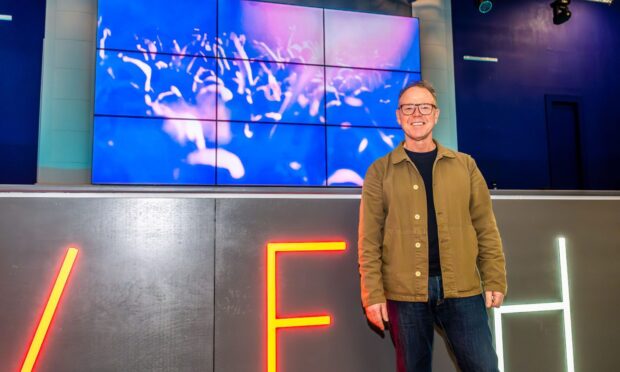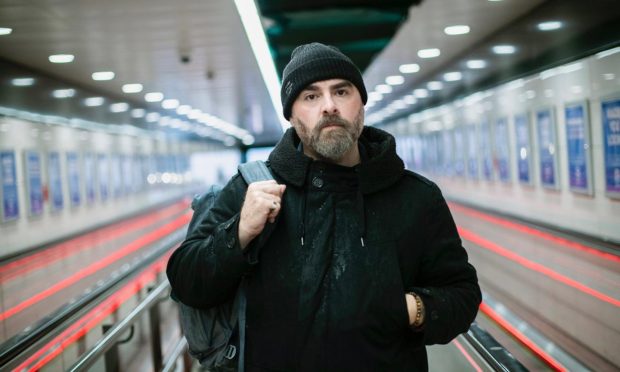Harmonic popsters Deacon Blue’s wait to tour their ninth studio album was so long they put another one out in the interlude.
It was early March last year that the Glasgow-based outfit released the UK top five City Of Love, with gigs at the likes of Perth Concert Hall, Edinburgh’s Usher Hall and the Hydro in Glasgow lined up alongside a host of other British Isles venues.
We all know what happened next. The subsequent mothballing of live music meant the band’s hopes of realising their plans were inevitably dashed, but the chance to pick up from where they left off is finally here.
The six-piece made their eagerly-anticipated concert return in Europe at the start of the month, before kicking off the UK leg of their tour in Newcastle on November 8.
Back on the road again
A further 18 shows have come and gone since then, including an appearance at London’s Royal Albert Hall last night.
Their sold-out return to Perth on Tuesday is the first of six Scottish dates, including a bonus visit to Dundee’s Caird Hall that wasn’t part of the original schedule.
It all adds up to a palpable sense of making up for lost time around Deacon Blue at the moment.
Yet by no means could it be said that an extended spell on the gigging sidelines has been wasted time for frontman Ricky Ross and cohorts Gregor Philp (guitar), James Prime (keys), Lorraine McIntosh (vocals), Dougie Vipond (drums) and Lewis Gordon (bass).
Less than a year after City Of Love’s arrival, a 10th studio album, Riding On The Tide Of Love – a slightly abridged companion piece – was unveiled in February.
Making a lot of music
Recorded in physically distanced circumstances amid pandemic restrictions, the eight-track set helped further whet the fans’ appetites for their idols’ eventual return in person, along with a couple of other intriguing offerings that have kept the Dignity and Real Gone Kid hit-makers firmly in the public eye.
June saw the 30th anniversary reissue of the blue-eyed soulsters’ third album Fellow Hoodlums, boasting the singles Twist And Shout, Your Swaying Arms and Cover From The Sky.
The antithesis of both the swaggering ‘baggy’ rhythms peddled by the likes of Happy Mondays and Stone Roses and the visceral energy of the grunge scene of the time, the formerly quaint and a tad uncool Celtic pop shindig was given the very ‘now’ coloured vinyl treatment to mark its landmark birthday.
More recently, we’ve had the first official Deacon Blue biog, Paul English’s To Be Here Someday, which draws on extensive interviews with band and crew members over the past 35 years.
The boy fae Dundee
Born and raised in Dundee, Ricky Ross reveals in the new book that he ordered the band to drop their biggest hits from their live set following Fellow Hoodlums’ release in 1991.
He’s quoted as saying he now wishes he could go back in time to refund disappointed fans, describing his former self as “a pernickety a******” who had an almost “bleak sense of Calvinism” about his desire to preach the value of the new songs as they were then.
Brought up in the evangelical Christian tradition, the singer says he looks back on his Dundee childhood as a time when music helped to spread love around.
“My folks had a piano, my mum had a choir, but then also they did a lot of singing in the house, and also a lot of singing at church,” the 63-year-old explains.
“Singing was part of that world for me. That was kind of musical, but on the other side my dad was a big radio listener.
“I probably went off to a different tradition. The kind of core and the faith and all that kind of stuff, well these were things that I didn’t really have any issue with so I grew up as a very happy child and young person.”
The singer says an interest in rock ‘n’ roll wasn’t encouraged during his High School of Dundee days, and he was well into his twenties by the time his creative ambitions started to gain traction, eventually releasing a solo album in 1984.
Teaching by day, gigs by night
“I was teaching in the mid-’80s earning some money, and then by night I was playing in bands,” says Ricky.
“I was playing first of all as a keyboard player in one band and then decided to do my own thing. When I was still teaching I negotiated a kind of publishing contract. I kind of gave up work for about nine months, risked it.
“I was enjoying teaching. I really enjoyed the kids I was working with, I enjoyed a lot of the staff I was working with – I still keep up with some of them – but I knew I wanted to do something else.”
It was the burgeoning Glasgow independent scene – Orange Juice, Aztec Camera, The Blue Nile and, particularly, the “inspirational” Simple Minds – in the decade’s early years that prompted Ross to leave Dundee in 1984.
Heading for the indie scene in Glasgow
“It (Glasgow) had an indie scene where post-punk had blossomed and record companies were interested in what was going on there,” he declares.
“I’d always visited Glasgow and I’d always thought, ‘This is the place I want to be in’. It was kind of an easy decision to make, and then once I’d done it I kind of never really moved away.
“I think it was the attractions of its music scene. I didn’t have any connections in London, I didn’t know anyone there.”
Looking back, he says everything flowed, career-wise, from that move.
Things fall into place
“Dougie was at the Royal Scottish Academy studying percussion,” Ricky recalls.
“There was another guy at the college who played keyboards and he said, ‘There’s this kid who desperately wants to get in a band, you should meet him’, and we met and we got on really well.
“This is like 1985 and we started putting a band together, Dougie and I and this other keyboard guy who eventually wanted to finish his degree and is still a good friend.
“In the early days the line-up was kind of fluid. On about the second demo we made Lorraine came in. We knew Lorraine a little bit but she was in another band.
“In that other band was Ewan, our bass player, and Dougie had always wanted to work with him. So Ewan was around, and Jim came in and genuinely changed things.
The band comes together
“He’s such a great musician and he’s such a great piano player. Within a short time after that we met Graeme, so that was the four of us that sort of signed the deal.
“We’d asked Ewan to join and he came in ’86.
“We were down in London and starting to record the album. Lorraine came down and by the time we’d finished writing she was almost part of the furniture.
“That was us and that was the way we stayed.”
Just weeks after the appearance of their debut single Dignity, Deacon Blue released the Raintown album on May 1 1987.
Minor hits followed in the shape of When Will You (Make My Telephone Ring), Loaded and Chocolate Girl, before Real Gone Kid broke the UK top 10 in October 1988, paving the way for the number one album When The World Knows Your name six months later.
Dignity went on to enjoy greater commercial success upon its re-release in 1994, and remains the definitive Deacon Blue composition, forged as it was out of a desire to keep the flame of hope burning even when faced by dire social and economic circumstances.
‘How life felt where I lived’
Describing the ever-popular anthem as “a song about how life felt where I lived”, its author maintains that he’d served a decade-long songwriting apprenticeship up to Raintown’s release.
“Dignity was written in 1985 at a time of huge unemployment in the UK and in Scotland,” Ricky explains.
“There was also a realisation that if we have full employment there’s still a whole lot of people who are going to have to do jobs that no one else wants to do.
“It was really about that whole thing, about the dignity of labour – yes, it’s a fantastic thing to have a job but maybe five to ten percent of people, when you talk to them, they would really love to be doing something else or looking forward to retirement or winning the lottery. I think that was what was behind it.
“It was about keeping a dream alive and the reason the song kind of resonates still is because it’s got a recurring motif in it, something that people can still relate to – that they can cling on to some possibility that there is a way out of this.”
Tickets for Deacon Blue’s Caird Hall show on Friday, December 10 are at ticketmaster.co.uk
